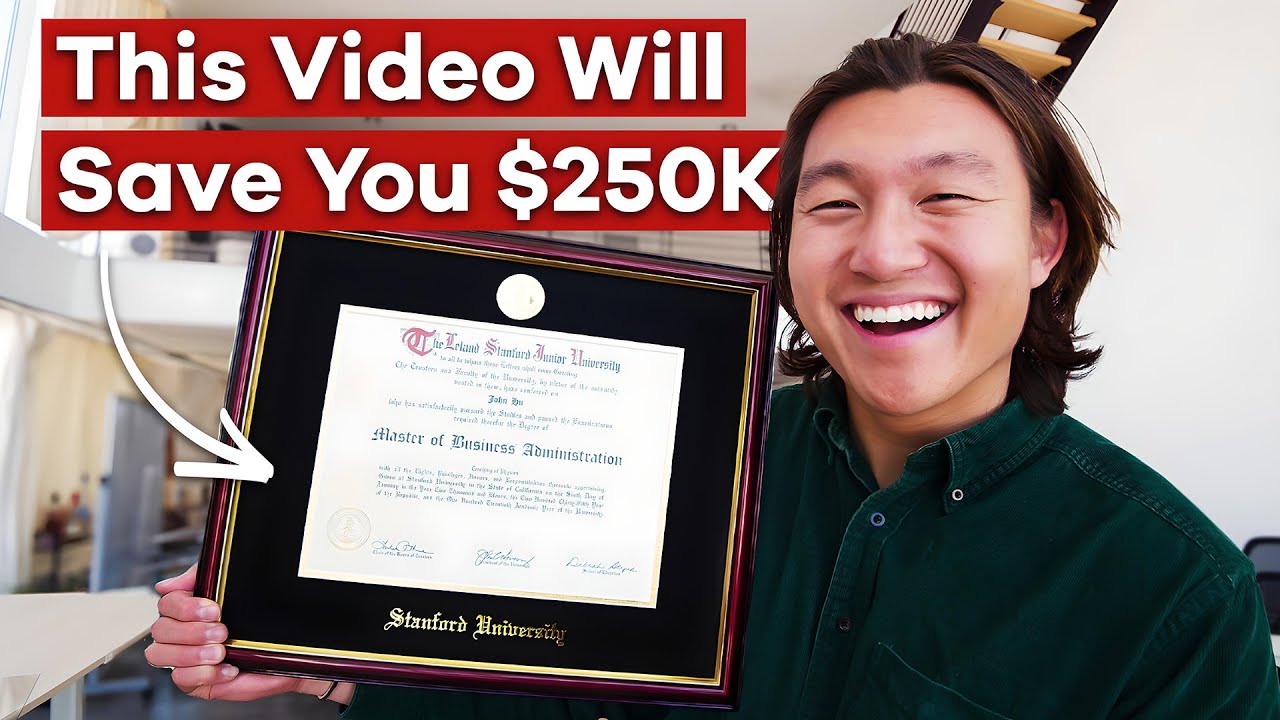becoming smart is easy
Summary
TLDRThis video script offers practical advice on building true intelligence beyond generic tips. It emphasizes three key principles: tutoring what you learn to refine thinking and identify core concepts, aligning intelligence with your environment to leverage your strengths, and engaging in 'knowledge campaigns'—focused periods of learning on specific subjects to foster intellectual growth. The speaker shares personal experiences and encourages viewers to apply these principles to enhance their lives.
Takeaways
- 🤓 Intelligence can be built with simple principles, not just through hard work or fancy schools.
- 🧑🏫 Tutoring helps refine your thinking process by forcing you to identify and teach the most important parts of a topic.
- 🧠 Teaching or applying what you learn improves your ability to retain and understand new information.
- 🌍 Align your intelligence with your environment to feel and be perceived as smarter.
- 🏫 Your surroundings can influence how smart you feel; different environments value different types of intelligence.
- 🧩 Cognitive psychologist Howard Gardner defines eight types of intelligence, highlighting that intelligence is multifaceted.
- 🎮 You can choose what type of intelligence to improve based on your interests and environment.
- 🎯 Accept that you can't be good at everything and focus on improving the intelligences that matter to you.
- 📅 Go on knowledge campaigns: dedicate 2-3 months to focus on and improve a specific subject or skill.
- 🔄 Diversify your knowledge campaigns to gain deep knowledge in various subjects and see connections between them.
Q & A
What is the main idea of the video?
-The video emphasizes that intelligence can be developed through simple principles rather than being an innate gift or something that requires extensive effort or education.
Why does the video suggest tutoring what you want to learn?
-Tutoring helps refine your thinking process by forcing you to identify the most important parts of the information and discard the less essential details, thus improving your fluid intelligence.
How does the video define 'fluid intelligence'?
-Fluid intelligence is the ability to reason and think logically in novel situations, which is honed by practices like tutoring where you need to quickly grasp and convey essential information.
What is the significance of explaining complicated topics in a simple way according to the video?
-The ability to explain complex subjects simply is seen as a key indicator of intelligence, as it demonstrates a deep understanding and the ability to distill information to its core elements.
Why does the video recommend aligning your intelligence with your environment?
-Aligning intelligence with the environment ensures that you are developing the type of intelligence that is valued and rewarded in your surroundings, which can boost your confidence and effectiveness.
What is the role of the environment in determining how smart someone is perceived to be?
-The environment sets the metrics for intelligence, and what is considered smart in one context might be seen as less valuable in another, affecting how individuals perceive their own intelligence.
How does the video relate to Howard Gardner's theory of multiple intelligences?
-The video references Howard Gardner's theory to illustrate that there are different types of intelligence and that recognizing and developing your strengths in certain areas can make you seem smarter in those contexts.
What is the concept of 'knowledge campaigns' introduced in the video?
-Knowledge campaigns are focused periods of 2 to 3 months where you concentrate on learning and practicing a specific subject to make significant gains in both fluid and crystallized intelligence.
Why is consistency important in knowledge campaigns according to the video?
-Consistency in daily attention and practice during knowledge campaigns allows the brain to encounter and overcome intellectual challenges, leading to the development of both types of intelligence.
What is the advice for diversifying knowledge campaigns?
-The video suggests engaging in various knowledge campaigns to gain deep knowledge in different subjects, which can help in seeing connections and similarities between them, ultimately enhancing overall intelligence.
Outlines

このセクションは有料ユーザー限定です。 アクセスするには、アップグレードをお願いします。
今すぐアップグレードMindmap

このセクションは有料ユーザー限定です。 アクセスするには、アップグレードをお願いします。
今すぐアップグレードKeywords

このセクションは有料ユーザー限定です。 アクセスするには、アップグレードをお願いします。
今すぐアップグレードHighlights

このセクションは有料ユーザー限定です。 アクセスするには、アップグレードをお願いします。
今すぐアップグレードTranscripts

このセクションは有料ユーザー限定です。 アクセスするには、アップグレードをお願いします。
今すぐアップグレード関連動画をさらに表示

How Praise Can Damage Your Child's Confidence

SAT Tips & Tricks that ACTUALLY work (minimal studying) in 2024

best way to slide in her instagram dms

How to Write a Cover Letter for a Job Application?

hot girl summer glow up guide ✨ internal & external

Everything I Learned at Stanford Business School in 28 Minutes
5.0 / 5 (0 votes)
